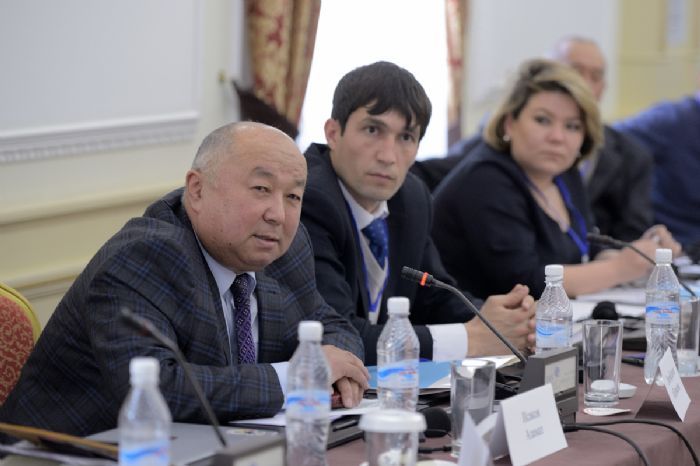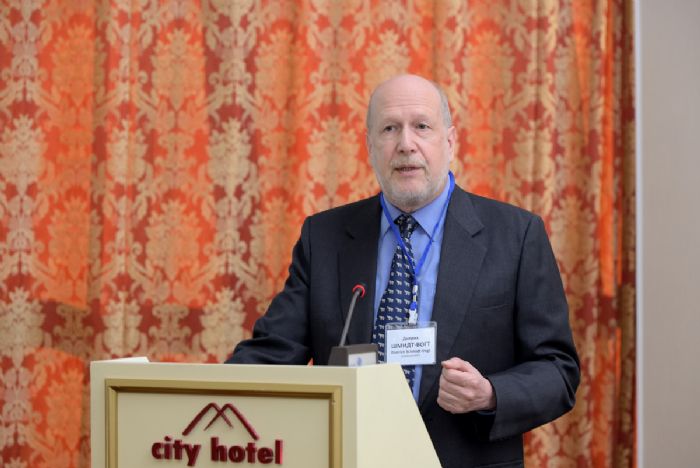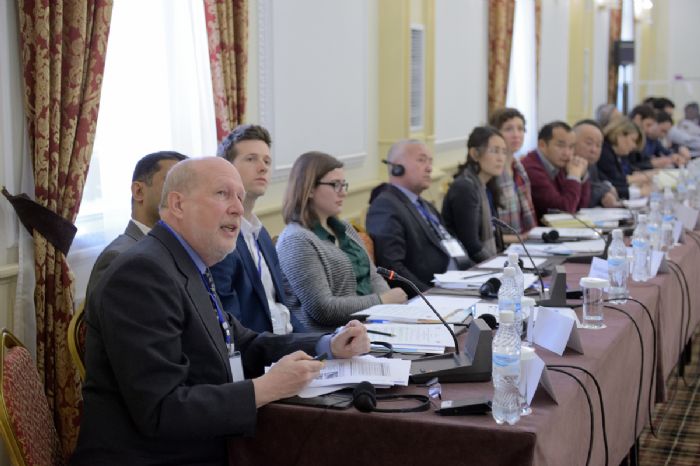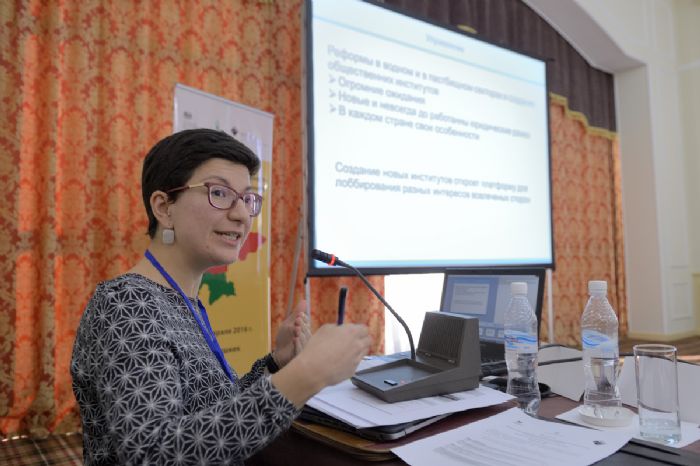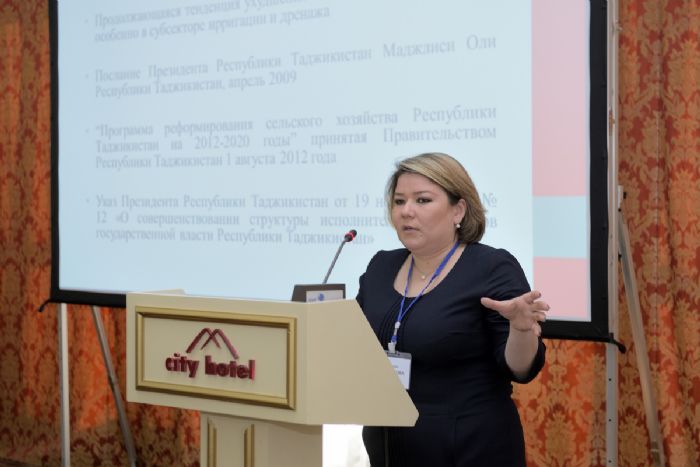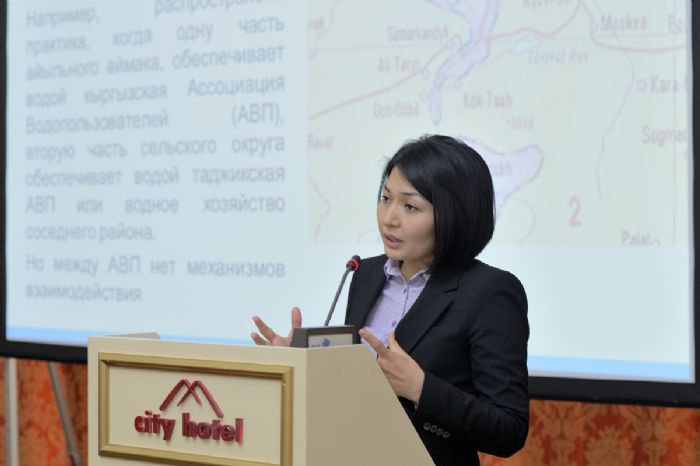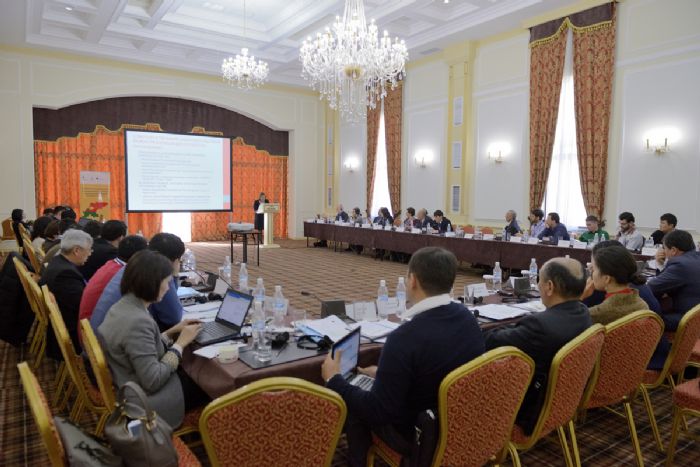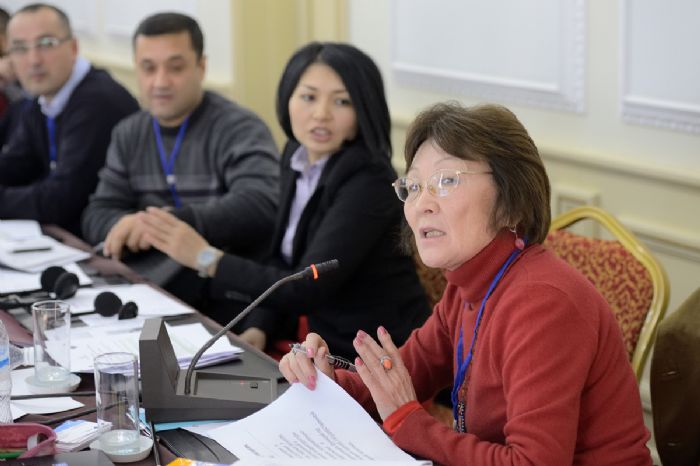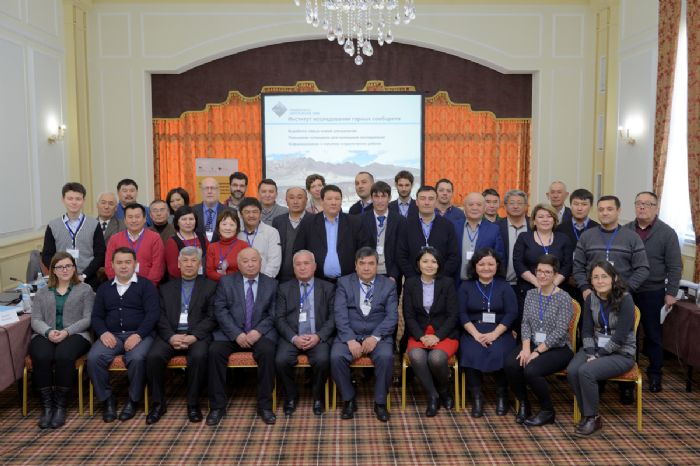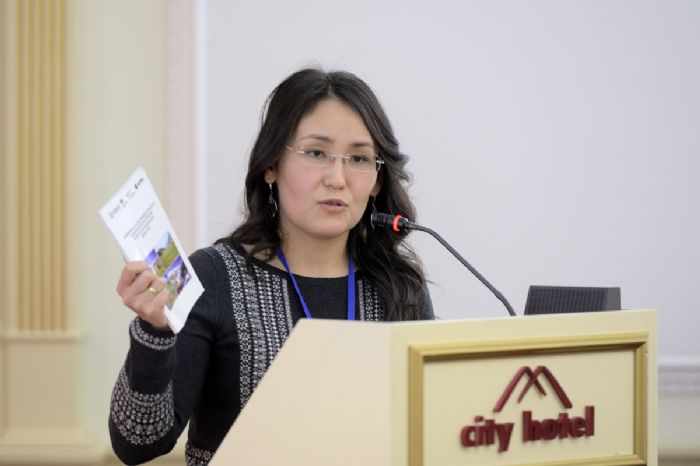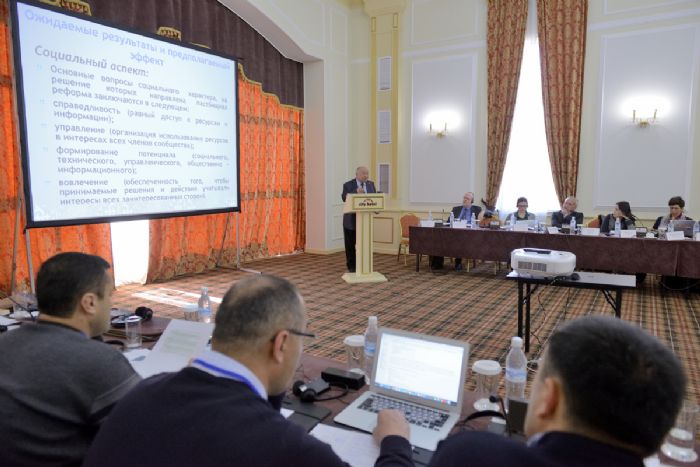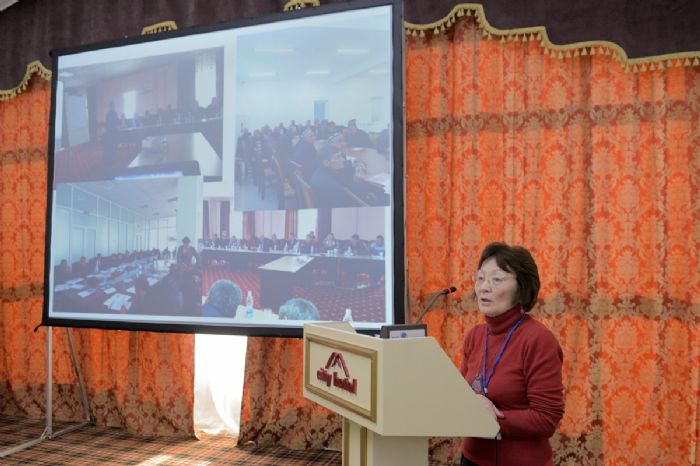
UCA’s MSRI Hosts Roundtable to Address Natural Resource Management Needs in the Kyrgyz Republic and Tajikistan
Dilovar Madjidov, speaking on reform efforts on pastures and the creation of community-based management institutions.
The University of Central Asia Mountain Societies Research Institute (UCA MSRI) organised a roundtable on 11 February 2016 on the dynamics of sharing vital natural resources in Tajikistan and the Kyrgyz Republic.
Natural resource management is one of MSRI’s primary research areas in Central Asia, where disputes over common land, water and other shared resources are often tied to poverty, environmental degradation and conflict.
The roundtable featured research discussions from Batken and Soghd oblasts as part of the project Reducing Conflict Over Water and Pastures in the Kyrgyz Republic and Tajikistan supported by the United Kingdom’s Conflict, Stability and Security Fund. Fifty-six attendees from government, academia, international organisations and NGOs in the Kyrgyz Republic and Tajikistan exchanged views, and shared preliminary research findings and recommendations on disputes over irrigation water and pasture use in neighbouring countries.
More than 40 percent of Batken residents and 23 percent Soghd residents live below the poverty rate. Residents rely on livestock for their livelihood, an activity that often depends on common resources and infrastructure. After the Soviet Union collapsed, reforms drastically transformed how resources were managed, naturally weakening cooperation between neighbouring countries and creating the potential for conflict over limited common land and water.
The roundtable acknowledged an urgent need for improved cooperation amongst agencies and government bodies providing aid and development interventions. Governments in both countries are pursuing to strengthen pasture and water user unions, headed by citizens, by establishing legal entities to shift away from disputes over natural resources.
Jamie Brockbank, Regional Conflict Advisor for Central Asia from the British Embassy to the Kyrgyz Republic highlighted the need for long-lasting coordination in natural resource management and praised this roundtable platform for promoting partnership between research and policymakers.
“It is easy to perform research in isolation, but much harder to appreciate the local context and design programming to make a long term difference. My observation is that this partnership is going to make a long term difference and on behalf of the British Embassy we are pleased to offer our support,” said Brockbank.
Delegates from both countries shared the progress of current reforms of natural resource management in the region. Dilovar Madjidov, District Project Officer, Livestock and Pasture Development Project funded by the International Fund for Agricultural Development (IFAD) in Kulob, Tajikistan, spoke on pasture reform and community-based management solutions.
Ekaterina Sahvaeva, an expert from the Department of Water Resources, Water Irrigation and International Water Allocation within the Kyrgyz Republic Ministry of Agriculture and a specialist on transboundary river basins, underlined the challenges of managing small trans-border watersheds on which citizens from both sides of the border depend.
The roundtable acknowledged an urgent need for improved cooperation amongst agencies and government bodies providing aid and development interventions. Governments in both countries are pursuing to strengthen pasture and water user unions, headed by citizens, by establishing legal entities to shift away from disputes over natural resources.
Jamie Brockbank, Regional Conflict Advisor for Central Asia from the British Embassy to the Kyrgyz Republic highlighted the need for long-lasting coordination in natural resource management and praised this roundtable platform for promoting partnership between research and policymakers.
“It is easy to perform research in isolation, but much harder to appreciate the local context and design programming to make a long term difference. My observation is that this partnership is going to make a long term difference and on behalf of the British Embassy we are pleased to offer our support,” said Brockbank.
Delegates from both countries shared the progress of current reforms of natural resource management in the region. Dilovar Madjidov, District Project Officer, Livestock and Pasture Development Project funded by the International Fund for Agricultural Development (IFAD) in Kulob, Tajikistan, spoke on pasture reform and community-based management solutions.
Ekaterina Sahvaeva, an expert from the Department of Water Resources, Water Irrigation and International Water Allocation within the Kyrgyz Republic Ministry of Agriculture and a specialist on transboundary river basins, underlined the challenges of managing small trans-border watersheds on which citizens from both sides of the border depend.
The project was supported by the British Embassy to the Kyrgyz Republic and the British Embassy to Tajikistan, and jointly implemented by MSRI, the Mountain Societies Development Support Programme (MSDSP) Kyrgyz Republic, MSDSP Tajikistan, CAMP Alatoo and the Roza Otunbaeva Fund and coordinated by the Aga Khan Foundation.
“This publication is published with the technical assistance of the British Embassies to Kyrgyzstan and Tajikistan. It does not necessarily reflect the official views of the Embassies”.



